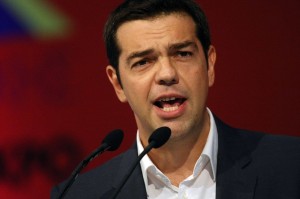Greek Prime Minister Reshuffles Government
Greek Prime Minister Alexis Tsipras reshuffled his government on November 4 when he removed multiple government ministers who had opposed the bailout reforms proposed by the creditors; a triumvirate consisting of the European Central Bank, the European Commission, and the International Monetary Fund .

According to Proto Thema, the biggest changes occurred in the sectors of education, environment and energy, and labor. Tsipras removed Nikos Filis from the Ministry of Education following his confrontation with the Archbishop of Athens Leronymos over a reform of the Greek curriculum. Tsipras transferred Minister of Environment and Energy, Panos Skourletis, who opposed privatization in the energy sector, to the Ministry of Interior Affairs. Finally, Georgios Katroungalos, the former Minister of Labor, was moved to the Ministry of Foreign Affairs, after having falsely promised Greek pensioners that no further cuts in pensions and benefits would be made.
The ministers who retained their positions had played an important role in negotiations with Greece’s creditors. For instance, Finance Minister Euclid Tsakalotos, a chief negotiator, retained his post. New politicians were also added to the cabinet, including Dimitris Papadimitriou, Kostas Gavroglou, Kostas Zouraris, and Sokratis Famelos.
Critics of Tsipras’ reshuffling have stated that these changes undermined the government’s original ideological base, as the Ministers who lost their positions were among the most vocal opponents of austerity and had run on that platform when seeking election. Panos Skourletis and Panagiotis Dritsas, who was removed from the Ministry of Shipping, had violently protested against the memorandum and the austerity measures.
Ekathimerini notes that a possible reason behind these reforms was Tsipras’ desire to “boost the party’s popularity.” Given the challenging tasks that lie ahead, it remains to be seen whether this renewed Greek government will be successful in its mission.
